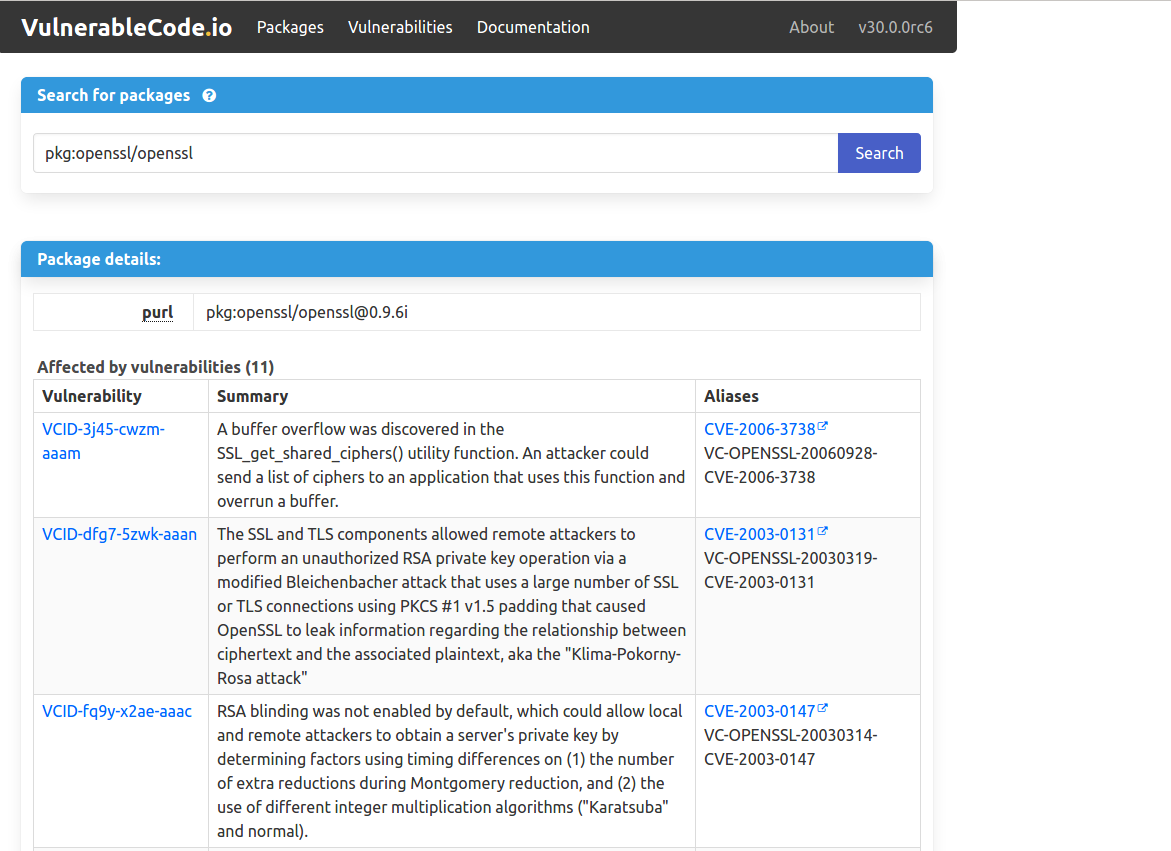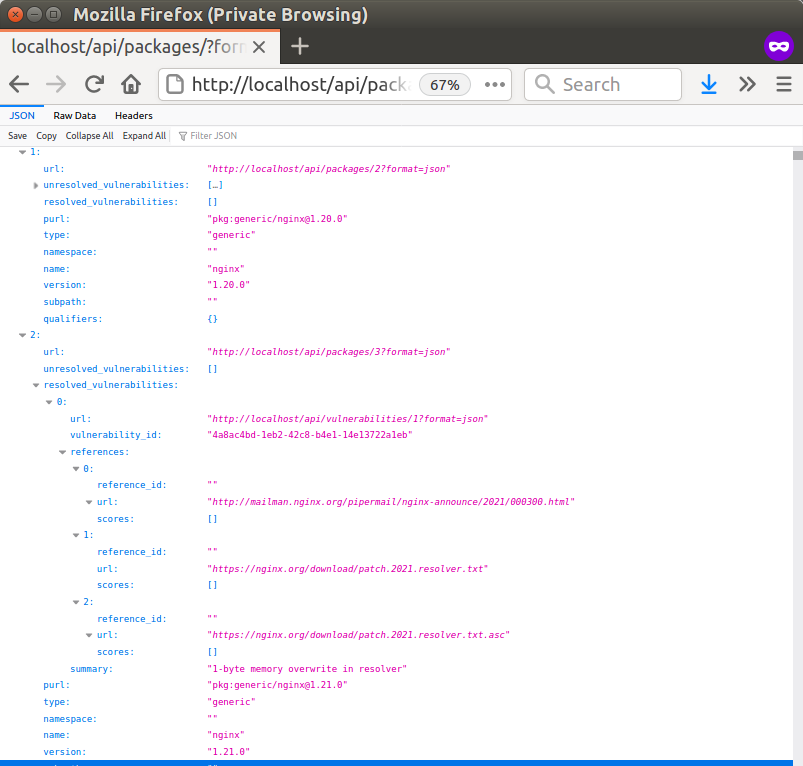VulnerableCode
VulnerableCode is a free and open database of open source software package vulnerabilities because open source software vulnerabilities data and tools should be free and open source themselves:
we are trying to change this and evolve the status quo in a few other areas!
- Vulnerability databases have been traditionally proprietary even though they are mostly about free and open source software.
- Vulnerability databases also often contain a lot of lesser value data which means a lot of false positive signals that require extensive expert reviews.
- Vulnerability databases are also mostly about vulnerabilities first and software package second, making it difficult to find if and when a vulnerability applies to a piece of code. VulnerableCode focus is on software package first where a Package URL is a key and natural identifier for packages; this is making it easier to find a package and whether it is vulnerable.
Package URL themselves were designed first in ScanCode and VulnerableCode and are now a de-facto standard for vulnerability management and package references.
See https://github.com/package-url/purl-spec
The VulnerableCode project is a FOSS community resource to help improve the security of the open source software ecosystem and its users at large.
VulnerableCode consists of a database and the tools to collect, refine and keep the database current.
Warning
VulnerableCode is under active development and is not yet fully usable.
Read more about VulnerableCode https://vulnerablecode.readthedocs.org/
VulnerableCode is financially supported by NLnet, nexB, Google (through the GSoC) and the active contributions of several volunteers.
VulnerableCode tech stack is Python, Django, PostgreSQL, nginx and Docker and several libraries.
Getting started
Run with Docker
First install docker and docker-compose, then run:
git clone https://github.com/nexB/vulnerablecode.git && cd vulnerablecode make envfile docker-compose build docker-compose up -d docker-compose run vulnerablecode ./manage.py import --list
Then run an importer for nginx advisories (which is small):
docker-compose exec vulnerablecode ./manage.py import vulnerabilities.importers.nginx.NginxImporter docker-compose exec vulnerablecode ./manage.py improve --all
At this point, the VulnerableCode app and API should be up and running with some data at http://localhost
Populate VulnerableCode database
VulnerableCode data collection works in two steps: importing data from multiple sources and then refining and improving how package and software vulnerabilities are related.
To run all importers and improvers use this:
./manage.py import --all ./manage.py improve --all
Local development installation
On a Debian system, use this:
sudo apt-get install python3-venv python3-dev postgresql libpq-dev build-essential git clone https://github.com/nexB/vulnerablecode.git && cd vulnerablecode make dev envfile postgres make test source venv/bin/activate ./manage.py import vulnerabilities.importers.nginx.NginxImporter ./manage.py improve --all make run
At this point, the VulnerableCode app and API is up at http://127.0.0.1:8001/
Interface
VulnerableCode comes with a minimal web UI:
And a JSON API and its minimal web documentation:
License
Copyright (c) nexB Inc. and others. All rights reserved.
VulnerableCode is a trademark of nexB Inc.
SPDX-License-Identifier: Apache-2.0 AND CC-BY-SA-4.0
VulnerableCode software is licensed under the Apache License version 2.0.
VulnerableCode data is licensed collectively under CC-BY-SA-4.0.
See https://www.apache.org/licenses/LICENSE-2.0 for the license text.
See https://creativecommons.org/licenses/by-sa/4.0/legalcode for the license text.
See https://github.com/nexB/vulnerablecode for support or download.
See https://aboutcode.org for more information about nexB OSS projects.
Acknowledgements
This project was funded through the NGI0 PET Fund, a fund established by NLnet with financial support from the European Commission's Next Generation Internet programme, under the aegis of DG Communications Networks, Content and Technology under grant agreement No 825310.
https://nlnet.nl/project/VulnerableCode/
This project was funded through the NGI0 Discovery Fund, a fund established by NLnet with financial support from the European Commission's Next Generation Internet programme, under the aegis of DG Communications Networks, Content and Technology under grant agreement No 825322.







